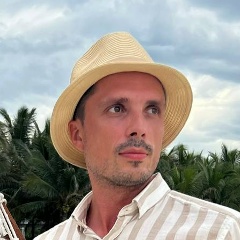Итог дня: открыла для себя новое эстонское слово — vrakk. Не знаю, как вам, но мне оно почему-то очень нравится: емкое оно, стремительное и немножко волшебное. В том смысле, что почти «вжжухх», только «vrrrakk». Также оно вызывает разные ассоциации, но, как выяснилось, значит совсем не то, что я сначала подумала (вы же знаете, у эстонцев есть чудная традиция: слова, связанные с воровством и кражей, заимствовать из русского; так мало ли, с враньем так же?).
Но в действительности значение у него очень красивое: остов погибшего судна! Так и написано в словаре, как будто авторы отвлеклись и начали писать приключенческий роман... И сразу такие мощные образы всплывают в голове... Правда, ниже в статье можно узнать, что бывает и autovrakk, то есть автомобильный остов. Так же vrakk остается от разбившегося самолета и от танка.
Вот на этом месте я и начала удивляться: образ-то цельный, конкретный, часто встречающийся (особенно, если смотреть кино специальных жанров), а в русском языке отдельного слова не нашлось. Почему-то. В Википедии статья vrakk есть на 23 языках. Среди них английский — shipwreck (да, видите, во что это превратилось в эстонском) — слово знакомо, могла бы и опознать германское заимствование. В польском есть (wrak). Во всяких романских и германских. А у нас нет. От языка не скроешь, кто является морской державой, а кто нет, хе-хе. Ладно, это фигня. Интереснее, что в английском это слово обозначает и событие (кораблекрушение), и результат (обломки). В эстонском оно обозначает уже только обломки (а для кораблекрушения есть эстонское слово). В русском же есть только процесс, а результат отдельного слова не заслужил. Напоследок, Тёрнер вам в ленту на ночь.
http://phenomena.nationalgeographic.com/files/2013/01/turner.jpg
Но в действительности значение у него очень красивое: остов погибшего судна! Так и написано в словаре, как будто авторы отвлеклись и начали писать приключенческий роман... И сразу такие мощные образы всплывают в голове... Правда, ниже в статье можно узнать, что бывает и autovrakk, то есть автомобильный остов. Так же vrakk остается от разбившегося самолета и от танка.
Вот на этом месте я и начала удивляться: образ-то цельный, конкретный, часто встречающийся (особенно, если смотреть кино специальных жанров), а в русском языке отдельного слова не нашлось. Почему-то. В Википедии статья vrakk есть на 23 языках. Среди них английский — shipwreck (да, видите, во что это превратилось в эстонском) — слово знакомо, могла бы и опознать германское заимствование. В польском есть (wrak). Во всяких романских и германских. А у нас нет. От языка не скроешь, кто является морской державой, а кто нет, хе-хе. Ладно, это фигня. Интереснее, что в английском это слово обозначает и событие (кораблекрушение), и результат (обломки). В эстонском оно обозначает уже только обломки (а для кораблекрушения есть эстонское слово). В русском же есть только процесс, а результат отдельного слова не заслужил. Напоследок, Тёрнер вам в ленту на ночь.
http://phenomena.nationalgeographic.com/files/2013/01/turner.jpg
The result of the day: I discovered a new Estonian word - vrakk. I do not know about you, but for some reason I like it very much: it is capacious, swift and a little magic. In the sense that it is almost “vzhuhh”, only “vrrrakk”. It also evokes various associations, but as it turned out, it’s not at all what I thought at first (you know, Estonians have a wonderful tradition: words related to theft and theft are borrowed from Russian; so little, with lies same?)
But in reality, his value is very beautiful: the wreck of a dead ship! So it is written in the dictionary, as if the authors were distracted and began to write an adventure novel ... And immediately such powerful images emerge in my head ... However, in the article below you can find out what happens and autovrakk, that is, the car body. Also vrakk remains from the crashed plane and from the tank.
It was here at this place that I began to wonder: an image of something integral, concrete, often encountered (especially when watching movies of special genres), and there was no single word in Russian. For some reason. Wikipedia has the vrakk article in 23 languages. Among them, English - shipwreck (yes, you see what it has become in Estonian) - the word is familiar, and German borrowing could also be recognized. In Polish there is (wrak). In any Romanesque and Germanic. And we do not. From the language can not hide who is a maritime state, and who is not, hehe. Okay, this is bullshit. It is more interesting that in English this word means both an event (shipwreck) and a result (fragments). In Estonian, it means only wreckage (and for a shipwreck there is an Estonian word). In Russian, there is only a process, and the result of a single word is not deserved. Finally, turner to tape you overnight.
http://phenomena.nationalgeographic.com/files/2013/01/turner.jpg
But in reality, his value is very beautiful: the wreck of a dead ship! So it is written in the dictionary, as if the authors were distracted and began to write an adventure novel ... And immediately such powerful images emerge in my head ... However, in the article below you can find out what happens and autovrakk, that is, the car body. Also vrakk remains from the crashed plane and from the tank.
It was here at this place that I began to wonder: an image of something integral, concrete, often encountered (especially when watching movies of special genres), and there was no single word in Russian. For some reason. Wikipedia has the vrakk article in 23 languages. Among them, English - shipwreck (yes, you see what it has become in Estonian) - the word is familiar, and German borrowing could also be recognized. In Polish there is (wrak). In any Romanesque and Germanic. And we do not. From the language can not hide who is a maritime state, and who is not, hehe. Okay, this is bullshit. It is more interesting that in English this word means both an event (shipwreck) and a result (fragments). In Estonian, it means only wreckage (and for a shipwreck there is an Estonian word). In Russian, there is only a process, and the result of a single word is not deserved. Finally, turner to tape you overnight.
http://phenomena.nationalgeographic.com/files/2013/01/turner.jpg

У записи 24 лайков,
0 репостов,
869 просмотров.
0 репостов,
869 просмотров.
Эту запись оставил(а) на своей стене Полина Оскольская

















![Таня Левичева [Белка] Таня Левичева [Белка]](https://sun9-26.vkuserphoto.ru/s/v1/ig2/r6WF7hk9aORlcF3OjVbKT6zmtPVdRdxuehaMwHnc43_HYux_ba_B7VoT5zXxyr91ubcthSY5_ga2F9fTTuDsfT-A.jpg?quality=96&crop=77,77,614,614&as=32x32,48x48,72x72,108x108,160x160,240x240,360x360,480x480,540x540&ava=1&cs=200x200)



























